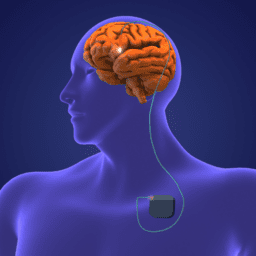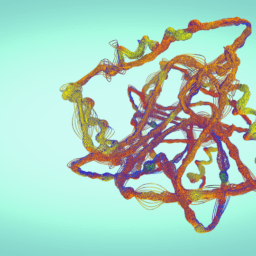Much of January’s Parkinson’s news is big-picture oriented. One team of researchers published an article arguing that tau may influence in Parkinson’s as significantly as alpha synuclein does. Another team published an overview of Parkinson’s epidemiology, and still another team published a new overview of Parkinson’s treatments. A large team representing the Movement Disorder Society offered a statement about biological definition, staging, and classification of Parkinson’s, and another team of researchers proposed a new way to determine stages of Parkinson’s.
Read on for links to these articles and the rest of January’s Parkinson’s news!
SCIENCE AND RESEARCH News
Parkinson’s Pathology and Pathogenesis
- Brain features a thoughtful exploration of the role of tau protein pathology, and whether focusing on tau would be a paradigm shift in Parkinson’s research.
- The Movement Disorder Society released a statement about biological definition, staging, and classification of Parkinson’s.
- Simuni et al. for The Lancet argue that Parkinson’s and dementia with Lewy bodies should no longer be defined as clinical syndromes but as neuronal alpha-synuclein disease. The authors argue that this shift would help improve the quality of clinical trial results by providing a way for researchers to group trial participants by biological characteristics instead of by clinical presentation. The authors also note that this should not influence the care a person with Parkinson’s receives from their care team at present. Read more about this at the Michael J. Fox Foundation.
- Exposure to air pollution increases risk of developing Parkinson’s–especially for those with genetic variants associated with Parkinson’s.
- According to lab-based experiments, COVID-19 infection can cause deterioration of dopamine neurons.
- Findings of alpha synuclein seed assay tests of cerebrospinal fluid can be associated with prognosis related to cognitive decline.
- Retinal thickness may serve as a biomarker for Parkinson’s–particularly regarding cognitive effects.
DBS-Related
- An article about essential tremor in Neurotherapeutics features Neudorfer et al.’s discussion of the role of the thalmus in movement disorders.
- Also in Neurotherapeutics, Martinez-Nunez et al. describe the current state and future of neuromodulation therapies for Parkinson’s.
- Jost et al. for JAMA Neurology report that DBS of the subthalamic nucleus can stabilize a person’s quality of life and has positive influence on mobility and motor complications over five years in people with advanced Parkinson’s.
- Anjum et al. for npj report that EEG measurements can be correlated with cognitive impairment.
Other Parkinson’s Treatments
- The Lancet features an overview of Parkinson’s treatments. Note that a free account is required to view this article.
- Dopamine therapy, especially dopamine agonists, are associated with impulse control disorders. A new consensus statement describes best practices for managing impulse control disorders.
- A phase I trial of a gene therapy treatment met its primary endpoint. AskBio, the trial’s sponsor, reports the treatment was well tolerated by the 12 trial participants. Planning for a phase II trial is underway.
- Björklund and Barker, prominent experts in cell replacement for Parkinson’s, argue that cell therapy to replace cholinergic neurons may help combat cognitive impairment in people living with Parkinson’s dementia.
Other News
- The Lancet features an overview of the epidemiology of Parkinson’s. Note that a free account is required to view this article.
- People with Parkinson’s are at an increased risk of death following a COVID-19 infection, even if they are vaccinated and received a booster.
- BMJ Open has a discussion of an ongoing study exploring use of wearable devices and machine learning to measure Parkinson’s severity.
- In Nature Genetics, Kim et al. report on a large-scale, multi-ancestry meta-analysis of genetic triggers for Parkinson’s. They found multiple new variants associated with Parkinson’s.
LIVING WELL STORIES
- Foundation co-founder Davis Phinney and board member Kevin Kwok are featured on a recent episode of the No Barriers podcast.
- Rock Steady Boxing is a boon for Moxie and others living with Parkinson’s in San Diego.
- A few years after her husband Keith was diagnosed with Parkinson’s, Linda Hall founded Parkinson’s Fitness, an organization providing free fitness and health based resources to the Parkinson’s community in Boston. Linda was recently honored by the New England Patriots for being a change maker in her community.
- Parkinson’s can’t stop William Daggett: an award winning artist who crafts sculptures out of wood and metal.
- On his blog, Tom Liodice shares how his experience as a soccer fan helped ease some of his Parkinson’s symptoms and enriched his life.
SURVEYS, CLINICAL TRIALS, AND VOLUNTEER OPPORTUNITIES
- The University of British Columbia is exploring efficacy of Mediterranean diet as an intervention for Parkinson’s.
- A study in London explores the effect of ballet dancing on motor and non-motor symptoms of Parkinson’s.
- Zydus Lifesciences received approval to begin a phase II trial of an NLRP3 inhibitor for people with Parkinson’s. NLRP3 inhibition is thought to work against neuroinflammation.
- Researchers in the UK and Australia began recruiting participants for a trial aiming to prevent people with REM sleep behavior disorder from developing Parkinson’s by reducing inflammation.
- Researchers in Sweden will begin recruiting participants for a trial of montelukast versafilm: a drug used to treat asthma and allergies. The research will explore whether montelukast has a neuroprotective effect.
- Texas Tech in Lubbock, Texas is undertaking a study about the effects of Parkinson’s on family functioning.
- Researchers in Holland are enrolling participants in a trial evaluating the use of motivational smartphone apps to increase exercise program adherence.
- Inhibikase is recruiting participants for a phase 2 trial of a new c-Abl tyrosine kinase inhibitor. In a press release, Inhibikase says their research “has validated the critical role that c-Abl plays in the initiation and progression of Parkinson’s disease, as well as the potential of IkT-148009 as a promising new approach to disease modification.” This trial is among the first to utilize recently validated alpha-synuclein seed assay tests.
- The International Parkinson and Movement Disorders Society (MDS) is developing a new electronic diary (e-Diary): a digital solution for Parkinson’s. This e-Diary is intended to better characterize how the disease affects daily life. The MDS invites people to participate in a survey to help aid the design of this new tool.
- A new trial studying Gemfibrozil–a drug that decreases fat production in the liver–is set for a phase two clinical trial in people with Parkinson’s. This trial will enroll people between 40 and 75 years of age who have not begun taking medication for Parkinson’s.
- The Speech Accessibility Project (SAP) seeks volunteers for a research initiative aiming to make voice recognition technology more useful for people with diverse speech patterns. More information is available here and here. To determine your participation eligibility, visit the SAP registration page.
- A team of Dutch researchers created PregSpark, a registry for women with Parkinson’s who are pregnant or have recently given birth. The goal is to build an online international pregnancy and Parkinson’s registry. This registry will prospectively and uniformly collect data on the course and outcome of as many as possible pregnancies in women with Parkinson’s. The data will help women with Parkinson’s make informed decisions about pregnancy and improve the quality of care pregnant women with Parkinson’s receive. The PregSpark site is under construction.
- A phase 1b trial is recruiting volunteers for a study of a treatment aiming to influence inflammation.
- Researchers in Norway are investigating the efficacy of ambroxol in people with dementia with Lewy bodies.
- Researchers in the UK, in partnership with the Women’s Parkinson’s Project and MyMovesMatter invite participation in a survey about the experience of menopause for women with Parkinson’s.
- Another study of ambroxol is launching: The DUPARG study is recruiting participants in Groningen, Netherlands.
- A new trial examining the possible neuroprotective effect of exercise has been listed by the University of Nevada.
- University of Rochester Center for Health + Technology is undertaking a survey study to assess the ability of the Parkinson’s Disease-Health Index to measure patient-relevant changes in disease burden over the course of two years. Participants will complete surveys five times over two years and must be over 18, speak English, and have a self-reported or clinical diagnosis of Parkinson’s. More information is available here.
- Researchers at Columbia University’s Irving Medical Center are seeking participants for a study exploring the role of immune response in Parkinson’s. Participation is open to those with and without Parkinson’s and will involve donating blood, a questionnaire, a cognitive test, and a neurological examination. Click here to express interest in participating.
- Johns Hopkins University has announced a trial to evaluate whether levetiracetam can improve symptoms of Parkinson’s psychosis. The trial is not yet recruiting, but intends to begin by September. The trial design features a crossover assignment, meaning every participant will receive an active trial drug for their participation.
- The LUMA trial continues to recruit participants. This trial aims to assess the safety and efficacy of BIIB122 tablets in slowing the progression of early-stage Parkinson’s. This study has sites in the US, China, France, Germany, the Netherlands, Poland, Spain, and the UK.
- The ACTIVATE trial is recruiting participants for a phase 2 trial of BIA 28-6156 in people with GBA mutations. This 78-week trial has site locations in the US, Canada, and Europe.
- In Colorado, a study the Foundation is funding continues to recruit participants. The study explores low-load resistance training with blood flow restriction to help develop exercise interventions for improved quality of life for people with advanced Parkinson’s.
- Washington University School of Medicine is sponsoring a study aiming to enroll participants with idiopathic REM sleep behavior disorder, as well as healthy controls, in preparation for a trial of neuroprotective treatments against synucleinopathies.
- A study in South Carolina hopes to identify brain biomarkers to predict the risk of cognitive change following DBS surgery.
- A survey in Ireland seeks to understand the influence of Parkinson’s symptoms and other factors on quality of life.
- Another survey for those in Ireland seeks to understand how people access information about Parkinson’s.
- A trial sponsored by the University of Aberdeen in Scotland is recruiting participants for a study of the effects of constipation and changes in the microbiota in Parkinson’s.
- Staying Connected through Communication Study: The University of Washington SPEAC Lab invites individuals living with Parkinson’s to answer survey questions about their communication experiences. This is an online survey study that will take about 30-45 minutes. (Paper surveys are also available.) People with Parkinson’s and their family/friends/coworkers will complete SEPARATE surveys, and data are not shared between participants. This study is open to anyone in the US. Participants will be mailed a $25 check upon survey completion.
- PreActive PD Study: This study, available for both English and Spanish speakers, implements an occupational-therapist-delivered physical activity behavior change coaching intervention in people with early-stage Parkinson’s. The study is based upon a recent single-arm cohort feasibility study (Pre-Activate PD/HD) that evaluated acceptability, implementation, and resulting effect estimates of the Pre-Activate PD intervention in 13 participants. The intervention provides one-on-one coaching sessions from an occupational therapist to individuals newly diagnosed with Parkinson’s. The individualized structured support in the sessions is aimed at facilitating and optimizing exercise uptake as part of an effective self-management program.
- Gamma Wave Trial: Sponsored by the Massachusetts Institute of Technology (MIT), this trial investigates the efficacy of a non-invasive method of neuromodulation called Gamma Entrainment Using Sensory Stimulation (GENUS) for managing Parkinson’s motor symptoms. GENUS is administered via light, sound, and tactile stimulation devices and has been tested on cognitively normal individuals and individuals with mild Alzheimer’s; the device was found to be safe for use and effective for entrainment in both populations.
- Deep Brain Stimulation (DBS) and Exercise Study at Barrow Neurological Institute: This study aims to help researchers learn more about how aerobic exercise affects symptoms of Parkinson’s and the quality of life in people who have DBS. They will also look at brain wave activity using the Medtronic Percept DBS device to better understand what changes in the brain might be caused by exercise and how that affects Parkinson’s symptoms. Phoenix-area residents reach out to Markey if interested.
- Colorado Oral Strengthening Device: The University of Colorado Denver is looking for adults with Parkinson’s to participate in a study exploring how a novel low-technology device can increase tongue strength comparable to standard-of-care exercise using tongue depressors but with the kinematics and simple biofeedback of existing high-cost devices. Research has shown that tongue resistance exercises paired with biofeedback result in improved tongue strength to support chewing, control of food and liquid in the mouth, and propulsion of material for a swallow.
- PD GENEration: The Parkinson’s Foundation announces a major expansion of its national study to make genetic testing and counseling more available for people with Parkinson’s. The study (NCT04057794) hopes to enroll 15,000 people in all 50 US states, Puerto Rico, and the Dominican Republic. For questions about enrollment, email genetics@parkinson.org. Know someone who speaks Spanish and wants to learn more and maybe participate in the study? Share this link.
- Parkinson’s Progression Markers Initiative: In an expanded study, the Parkinson’s Progression Markers Initiative (PPMI) is currently working to enroll up to 100,000 people with and without Parkinson’s. The study team is especially seeking to enroll people diagnosed with Parkinson’s in the past two years and who are not yet on treatment, as well as people 60 and older who aren’t living with Parkinson’s but have a risk factor for it (such as a close relative with Parkinson’s, a known Parkinson’s-associated mutation, and/or REM sleep behavior disorder). The observational study is also enrolling people with no known connection to Parkinson’s to serve as a control group.
- TOPAZ (Trial of Parkinson’s and Zoledronic Acid): Caroline Tanner, MD, PhD, is recruiting participants for a new remote clinical trial led by a team of Parkinson’s experts at UCSF in partnership with researchers from across the country. The study aims to help people with Parkinson’s or parkinsonism maintain their independence by reducing the risk of hip fractures. The study will test if zoledronate, an FDA-approved medication for osteoporosis, can prevent fractures in people with Parkinson’s–whether or not they have osteoporosis. To learn more, visit the study website at TOPAZstudy.org, email TOPAZ@ucsf.edu, or call (415) 317-5748.
- A PD Avengers research group is undertaking a new project called Sparks of Experience, designed to be more systematic about collecting and considering the experiences and ideas that come from the curious minds of people living with Parkinson’s. “In the past, these sometimes quirky ideas inspired by lived experience have turned into significant new directions for research. It could be said we are trying to capture serendipity,” the team says. To learn more and get involved, see the flyer here.
- Game-Based Exercise Project: Researchers at the University of Auckland are investigating how games can be used as potential rehabilitation systems. This project aims to develop suitable game-based exercise experiences to help people living with Parkinson’s. If you are 45 or older, living with a chronic condition such as Parkinson’s, and/or are experiencing age-related health conditions, you are invited to participate in a survey that will help the researchers to understand the community’s interest in games and gameplay in the context of exercise and rehabilitation. To learn more and take the 15-minute survey, see the flyer here.
- SPARX3 – A Phase 3 Clinical Trial about Exercise and Parkinson’s: This research team is currently seeking volunteers to participate in a clinical trial about the effects of aerobic exercise on people with Parkinson’s. Learn more and see if you qualify here. For more details, contact Katherine Balfany at SPARX3@ucdenver.edu.
- The University of Oulu and collaborators from Aalborg University, Fraunhofer University, the University of Manchester, the University of Glasgow, the University of Lisbon, and the University of Melbourne are conducting a survey for people with Parkinson’s and care partners about self-care. Complete the survey here to share your self-care strategies and techniques. You can also review ideas submitted by others and add them to your own self-care toolbox.
- Speech and Telemedicine Study: The Purdue Motor Speech Lab
- Parkinson’s and Service Dogs: University of Groningen, Netherlands
- Neurology Study Interest Registry: University of Rochester
For more of what’s new in Parkinson’s news, check out our full series here.
 WANT MORE PRACTICAL ARTICLES LIKE THIS?
WANT MORE PRACTICAL ARTICLES LIKE THIS?
You can learn much more about living well with Parkinson’s today through our Every Victory Counts® suite of resources. Each manual is packed with up-to-date information about everything Parkinson’s. Click the link below to reserve your manual(s).
Thank you to our 2024 Gold Partner, AbbVie, and our Silver Partner, Mitsubishi Tanabe Pharma America, for their ongoing support of these must-have manuals. Additionally, we’d like to thank Barbara and Dale Ankenman, Abby and Ken Dawkins, Bonnie Gibbons, Irwin Narter, Lorraine and J Wilson, and Gail Gitin in loving memory of Gene Gitin for their generous donations that allow us to make these resources available and accessible to all.

















